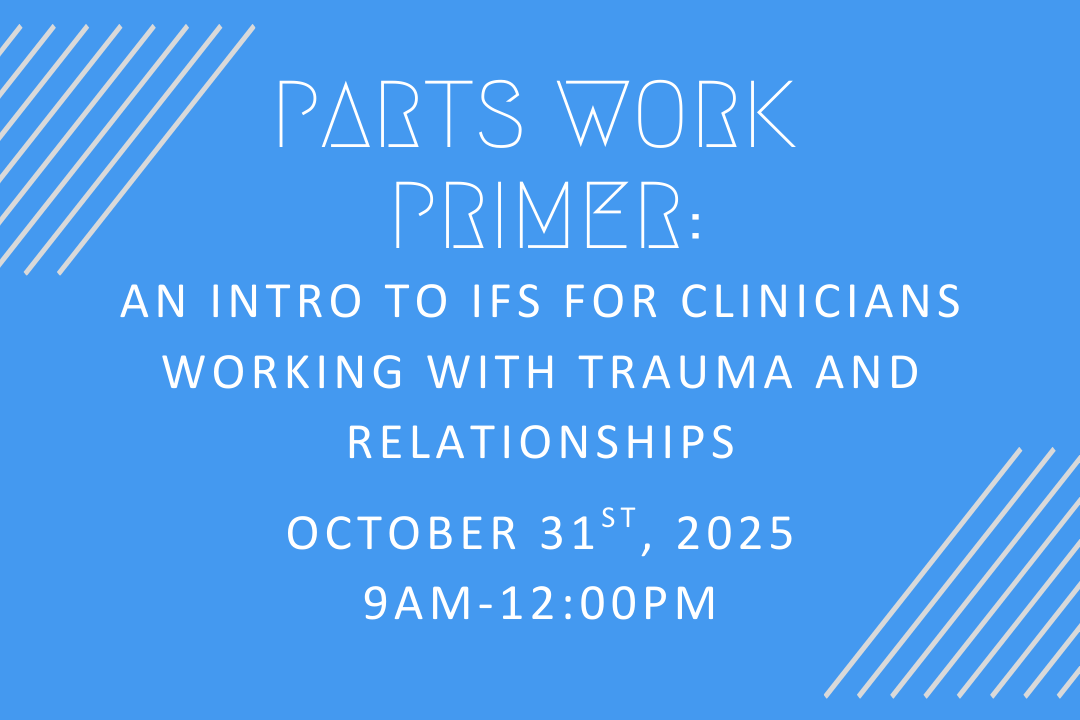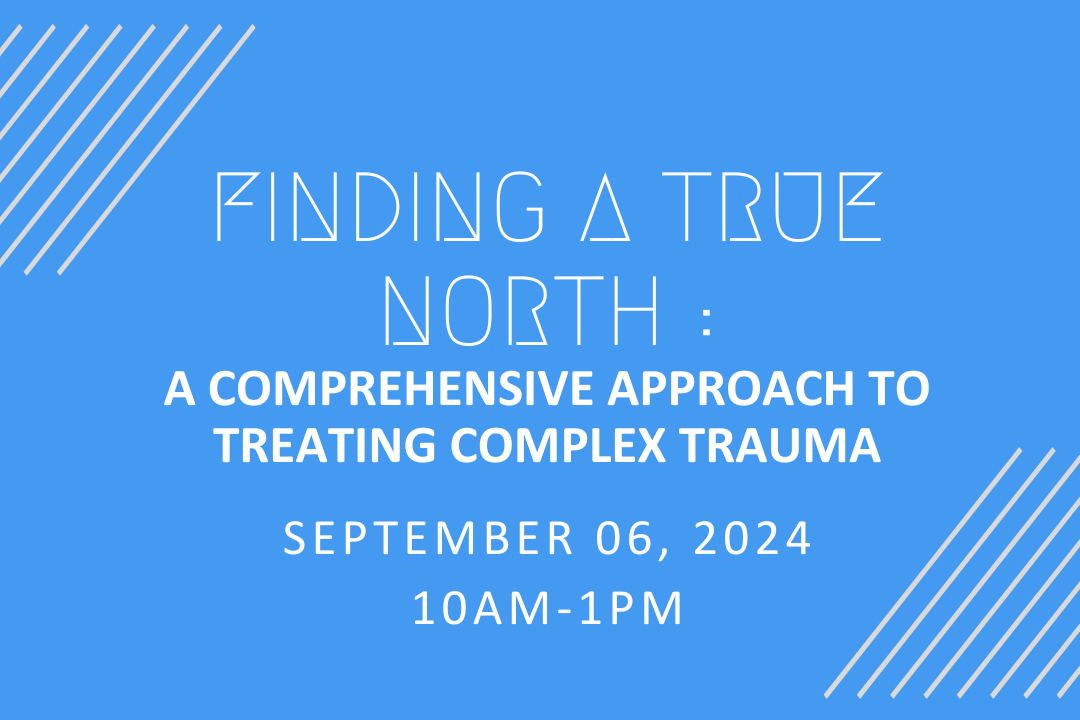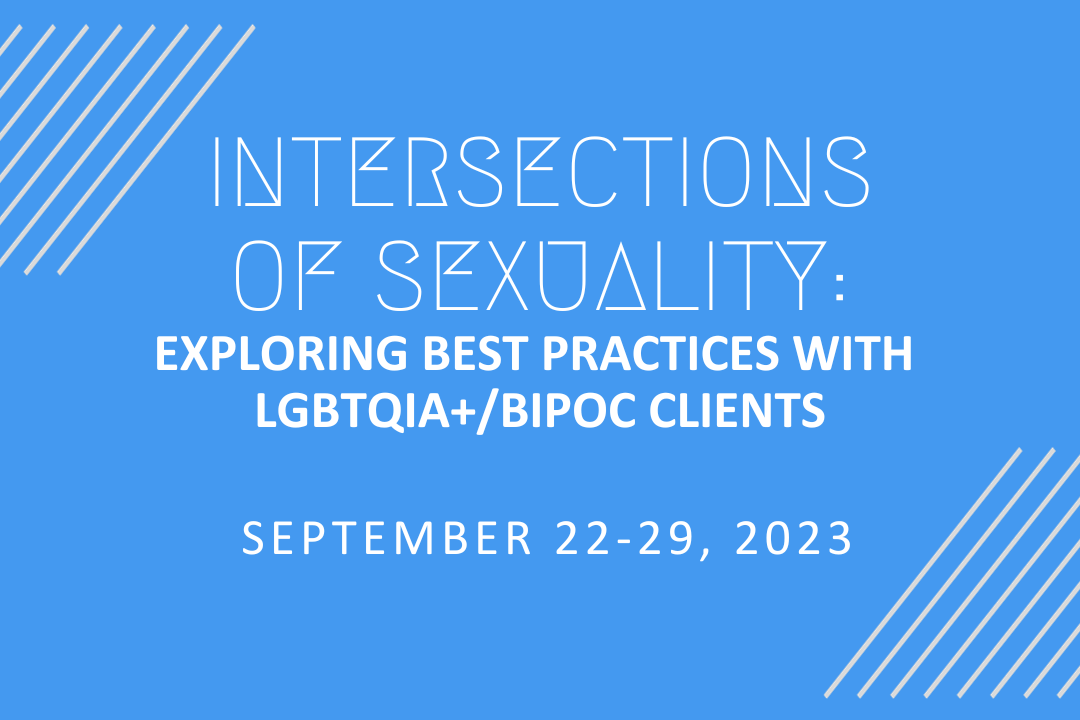
Beyond Communication: Helping Couples Explore and Deepen Their Intimate Bonds
This training expands upon traditional approaches by integrating an intimacy-focused model, equipping therapists with skills to enhance connection, address intimacy challenges, and explore diverse relationship dynamics. Participants will learn how to balance communication strategies with methods that deepen intimacy, helping couples cultivate more fulfilling and resilient relationships. By blending foundational techniques with innovative, research-backed approaches, this course offers a comprehensive framework for strengthening both communication and intimacy in couples therapy.

Somatic Experiencing Applied to Sexuality
Participants will learn about the basic principles and theory of the somatic experiencing (SE) model. The SE approach offers a framework to assess where your client is “stuck” in the fight, flight, or freeze responses and provides clinical tools to resolve these fixated physiological states that underlie so many trauma symptoms. This workshop is both theoretical and highly experiential, offering effective skills for restoring nervous system regulation and resolving sexual trauma and dysfunctions that can be immediately integrated into your professional practice.

Values in Action: on: Using ACT to Navigate Sexuality, Trauma, and Relationships
ACT 101: Acceptance and Commitment Therapy (ACT) invites clinicians to deepen their understanding of psychological flexibility: the concept at the heart of ACT, which empowers clients to live values-driven lives and navigate the inevitable suffering that comes with being a person. In this interactive workshop, you’ll explore the six processes of the ACT Hexaflex–Acceptance, Cognitive Defusion, Contact with the Present Moment, Self-as-Context, Values, and Committed Action–through hands-on exercises and metaphors. You’ll learn how to apply them broadly, as well as specifically in the contexts of trauma work, sex therapy, and couples/relationship therapy.

Beyond Communication: Helping Couples Explore and Deepen Their Intimate Bonds
This training expands upon traditional approaches by integrating an intimacy-focused model, equipping therapists with skills to enhance connection, address intimacy challenges, and explore diverse relationship dynamics. Participants will learn how to balance communication strategies with methods that deepen intimacy, helping couples cultivate more fulfilling and resilient relationships. By blending foundational techniques with innovative, research-backed approaches, this course offers a comprehensive framework for strengthening both communication and intimacy in couples therapy.

Parts Work Primer: An Intro to IFS for Clinicians Working with Trauma and Relationships
This three-hour experiential workshop introduces clinicians to the Internal Family Systems (IFS) model, a trauma-informed, evidence-based approach that conceptualizes the mind as an inner family of parts led by the Self. Originally developed by Richard Schwartz, IFS has been applied to a wide range of clinical concerns, including trauma, depression, anxiety, substance abuse, and relational conflict (Anderson, Sweezy, & Schwartz, 2017). With a particular focus on trauma and relational distress, participants will explore the roles of managers, firefighters, and exiles, and learn how protective strategies emerge in response to early wounds. Through lecture, case examples, mapping exercises, and experiential activities, participants willgain practical skills in identifying protective patterns, unblending parts, and l earning how to foster a Self-to-part connection (Chang, 2019).

Somatic Experiencing Applied to Sexuality
Participants will learn about the basic principles and theory of the somatic experiencing (SE) model. The SE approach offers a framework to assess where your client is “stuck” in the fight, flight, or freeze responses and provides clinical tools to resolve these fixated physiological states that underlie so many trauma symptoms. This workshop is both theoretical and highly experiential, offering effective skills for restoring nervous system regulation and resolving sexual trauma and dysfunctions that can be immediately integrated into your professional practice.

Sex Therapy 101
This workshop will provide mental health professionals with a foundation on sex therapy that goes beyond the basics of psychology, anatomy, physiology and human development. Participants of this training will gain comfort in completing a basic sexual history assessment, identifying the most common dysfunctions, and understanding how working holistically with other professionals can help normalize the issues that are preventing clients from accepting themselves, their desires and their bodies, and developing meaningful sexual relationships.

ACT 101
ACT 101: Acceptance and Commitment Therapy (ACT) invites clinicians to deepen their understanding of psychological flexibility: the concept at the heart of ACT, which empowers clients to live values-driven lives and navigate the inevitable suffering that comes with being a person. In this interactive workshop, you’ll explore the six processes of the ACT Hexaflex–Acceptance, Cognitive Defusion, Contact with the Present Moment, Self-as-Context, Values, and Committed Action–through hands-on exercises and metaphors. You’ll learn how to apply them broadly, as well as specifically in the contexts of trauma work, sex therapy, and couples/relationship therapy.

Explorations of the Treatment of Complex Trauma and Non-Death-related grief through the Tri-Phasic Trauma Treatment Model
Responses to chronic interpersonal violence exposure, particularly during sensitive developmental periods, often include a wide range of more broad, severe, and enduring reactions in addition to PTSD symptoms. These symptoms often include difficulties with emotion regulation and distress tolerance, as well as self-harming behaviors, dissociation, and somatic concerns. Furthermore, individuals with complex trauma may experience grief reactions in response to non-death losses that impact them, alongside trauma experiences. In general, professionals and trainees may receive very little formal trauma training, and even less training in appropriate treatment approaches to assist clients with complex trauma and non-death losses, leaving them feeling insufficiently prepared to effectively address the needs of these individuals.

Beyond Communication: Helping Couples Explore and Deepen Their Intimate Bonds
This training expands upon traditional approaches by integrating an intimacy-focused model, equipping therapists with skills to enhance connection, address intimacy challenges, and explore diverse relationship dynamics. Participants will learn how to balance communication strategies with methods that deepen intimacy, helping couples cultivate more fulfilling and resilient relationships. By blending foundational techniques with innovative, research-backed approaches, this course offers a comprehensive framework for strengthening both communication and intimacy in couples therapy.

Beyond Communication: Helping Couples Explore and Deepen Their Intimate Bonds
This training expands upon traditional approaches by integrating an intimacy-focused model, equipping therapists with skills to enhance connection, address intimacy challenges, and explore diverse relationship dynamics. Participants will learn how to balance communication strategies with methods that deepen intimacy, helping couples cultivate more fulfilling and resilient relationships. By blending foundational techniques with innovative, research-backed approaches, this course offers a comprehensive framework for strengthening both communication and intimacy in couples therapy.

Spring Connection: Mix, Mingle, & Learn with Surrogate Partner Experts
Join Soleil Psychotherapy, Zeuben Painter-Edington, and Elmo Painter-Edington from 5pm-8pm for a spring mixer & free 1.5-hour CEU. The presentation portion between 6:00pm-7:30pm will include a workshop on Surrogate Partner therapy and the Triadic model. The mixer portion of the event will be before and after the presentation where people connect and socialize.

Somatic Experiencing Applied to Sexuality
Participants will learn about the basic principles and theory of the somatic experiencing (SE) model. The SE approach offers a framework to assess where your client is “stuck” in the fight, flight, or freeze responses and provides clinical tools to resolve these fixated physiological states that underlie so many trauma symptoms. This workshop is both theoretical and highly experiential, offering effective skills for restoring nervous system regulation and resolving sexual trauma and dysfunctions that can be immediately integrated into your professional practice.

Sex Therapy 101
This workshop will provide mental health professionals with a foundation on sex therapy that goes beyond the basics of psychology, anatomy, physiology and human development. Participants of this training will gain comfort in completing a basic sexual history assessment, identifying the most common dysfunctions, and understanding how working holistically with other professionals can help normalize the issues that are preventing clients from accepting themselves, their desires and their bodies, and developing meaningful sexual relationships.

Clinical Considerations: Working with Queer and Trans Clients
In 2023, approximately 7.6% of adults in America identified themselves as queer. Another 1.2% as Trans. While it is suspected that that number is under-reported due to ongoing stigmatization, this leads to an increased need for clinical competency in working with queer and trans clients. To create and hold space for queer clients to further understand themselves, we as clinicians, must work to ethically empower. This includes but is not limited to understanding our unconscious biases, the role which medical institutions play in the care our clients receive, as well as which theoretical approaches best support our client’s visions of themselves. Through this workshop, we hope to provide an authentic, personal, and BIPOC approach to working with queer and trans clients.

Fostering Safety, Attachment, and Regulation in Complex Trauma Survivors
Building a safe enough therapeutic relationship with childhood trauma survivors is one of the most important aspects of trauma healing and integration. It aids in regulation, trauma processing, reducing dissociation, and managing shame. Our complex trauma survivor clients struggle deeply to know how to regulate themselves both on their own and in our dyadic relationship because of the harm they experienced at the hands of people who were supposed to care for them. As critical as building attachment safety is with our clients, it is also the most complicated part of treatment. Relationally injured clients both fear attachment and vulnerability and long for it at the same time. They have built sophisticated defenses that make feeling safe fraught with complication. In this workshop, we will explore how to help build safety and regulation within our deeply injured clients.

Substance Use & Out of Control Sexual Behaviors: Enhancing Therapeutic Practice
Participants will learn about the basic principles and theory of the somatic experiencing (SE) model. The SE approach offers a framework to assess where your client is “stuck” in the fight, flight, or freeze responses and provides clinical tools to resolve these fixated physiological states that underlie so many trauma symptoms. This workshop is both theoretical and highly experiential, offering effective skills for restoring nervous system regulation and resolving sexual trauma and dysfunctions that can be immediately integrated into your professional practice.

Somatic Experiencing Applied to Sexuality
Participants will learn about the basic principles and theory of the somatic experiencing (SE) model. The SE approach offers a framework to assess where your client is “stuck” in the fight, flight, or freeze responses and provides clinical tools to resolve these fixated physiological states that underlie so many trauma symptoms. This workshop is both theoretical and highly experiential, offering effective skills for restoring nervous system regulation and resolving sexual trauma and dysfunctions that can be immediately integrated into your professional practice.

Sex Therapy 101
This workshop will provide mental health professionals with a foundation on sex therapy that goes beyond the basics of psychology, anatomy, physiology and human development. Participants of this training will gain comfort in completing a basic sexual history assessment, identifying the most common dysfunctions, and understanding how working holistically with other professionals can help normalize the issues that are preventing clients from accepting themselves, their desires and their bodies, and developing meaningful sexual relationships.

Finding a True North": A comprehensive Approach to Complex Trauma
While sexuality is a central aspect of being human it is, unfortunately, too often a topic that is overlooked and avoided in therapy. This is due, in part, to clinicians' discomfort and lack of knowledge regarding addressing and treating sexually related issues with their clients. Overall, research indicates that clinicians are not receiving adequate training regarding sexuality and sexual wellness. Moreover, a significant portion of the research literature on sexuality and relationships is from heterosexist and couple default position.

Mix & Mingle Summer Party w/ Therapeutic BDSM & Femme Dom Demo
Join Soleil Psychotherapy, Dr. Yulinda Renee Rahman, and Mistress Autumn from 4pm-9pm for a summer mixer & free 2-hour CEU. The presentation portion between 5:00pm-6:30pm will include a workshop on therapeutic BDSM and an experiential portion with Mistress Autumn. The mixer portion of the event will be before and after the presentation where people connect and socialize.

Somatic Experiencing Applied to Sexuality
Participants will learn about the basic principles and theory of the somatic experiencing (SE) model. The SE approach offers a framework to assess where your client is “stuck” in the fight, flight, or freeze responses and provides clinical tools to resolve these fixated physiological states that underlie so many trauma symptoms. This workshop is both theoretical and highly experiential, offering effective skills for restoring nervous system regulation and resolving sexual trauma and dysfunctions that can be immediately integrated into your professional practice.

Intersections of Sexuality: Exploring Best Practices with LGBTQIA+/BIPOC Clients
While sexuality is a central aspect of being human it is, unfortunately, too often a topic that is overlooked and avoided in therapy. This is due, in part, to clinicians' discomfort and lack of knowledge regarding addressing and treating sexually related issues with their clients. Overall, research indicates that clinicians are not receiving adequate training regarding sexuality and sexual wellness. Moreover, a significant portion of the research literature on sexuality and relationships is from heterosexist and couple default position.

Dismantling Fatphobia in the Therapy Room
Dismantling Fatphobia in the Therapy Room discusses the origins of diet culture and fatphobia being rooted in racism. There will be an overview of the Health At Every Size Model and explanation of why prescribing diets or weight loss is unethical and outside of our scope of practice. Time will be dedicated to help participants unpack their own anti fat biases.

Sexual Health, Mental Health, & Medications: How they Intersect
Sexual health, mental health and medications - are you having these essential conversations with your patients?
To begin with, many of us don't talk about the sexual implications of psychiatric conditions with our patients. Yet the impact of psych conditions on patient sex lives can often be a reason that they come into care.
Then there is the potential impact of medication: psychiatric medications can increase or dysregulated sexual performance - a leading cause for medication reluctance or discontinuation.
The elephant in the room, however, is that many health conditions and many other types of medications can cause sexual dysfunction — and mental health issues (or psychotropics) may not be the culprits at all.
Join Soleil Psychotherapy and Psychiatric Nurse Practitioner Tony Amberg to find out more about the intersection of sexual health, mental health and medications. Our discussion will help you engage in the conversations that patients are afraid to have about their sex lives, and clarify whom they should engage for help to make things better.

Sex Therapy 101
This workshop will provide mental health professionals with a foundation on sex therapy that goes beyond the basics of psychology, anatomy, physiology and human development. Participants of this training will gain comfort in completing a basic sexual history assessment, identifying the most common dysfunctions, and understanding how working holistically with other professionals can help normalize the issues that are preventing clients from accepting themselves, their desires and their bodies, and developing meaningful sexual relationships.

Neurodivergence: Relational and Sexuality Affirming Practices 101
Join us for an insightful workshop delving into the origins of the neurodivergence movement and its significance. This workshop will guide clinicians through the application of neurodivergent-affirming principles in therapeutic contexts, with a specific emphasis on addressing relational and sexuality challenges in working with neurodivergent clients. Clinicians will gain valuable insights into implementing affirming practices, ultimately enhancing the quality of care for this unique client demographic.

Intersections of Sexuality: Exploring Best Practices with LGBTQIA+/BIPOC Clients
While sexuality is a central aspect of being human it is, unfortunately, too often a topic that is overlooked and avoided in therapy. This is due, in part, to clinicians' discomfort and lack of knowledge regarding addressing and treating sexually related issues with their clients. Overall, research indicates that clinicians are not receiving adequate training regarding sexuality and sexual wellness. Moreover, a significant portion of the research literature on sexuality and relationships is from heterosexist and couple default position.
